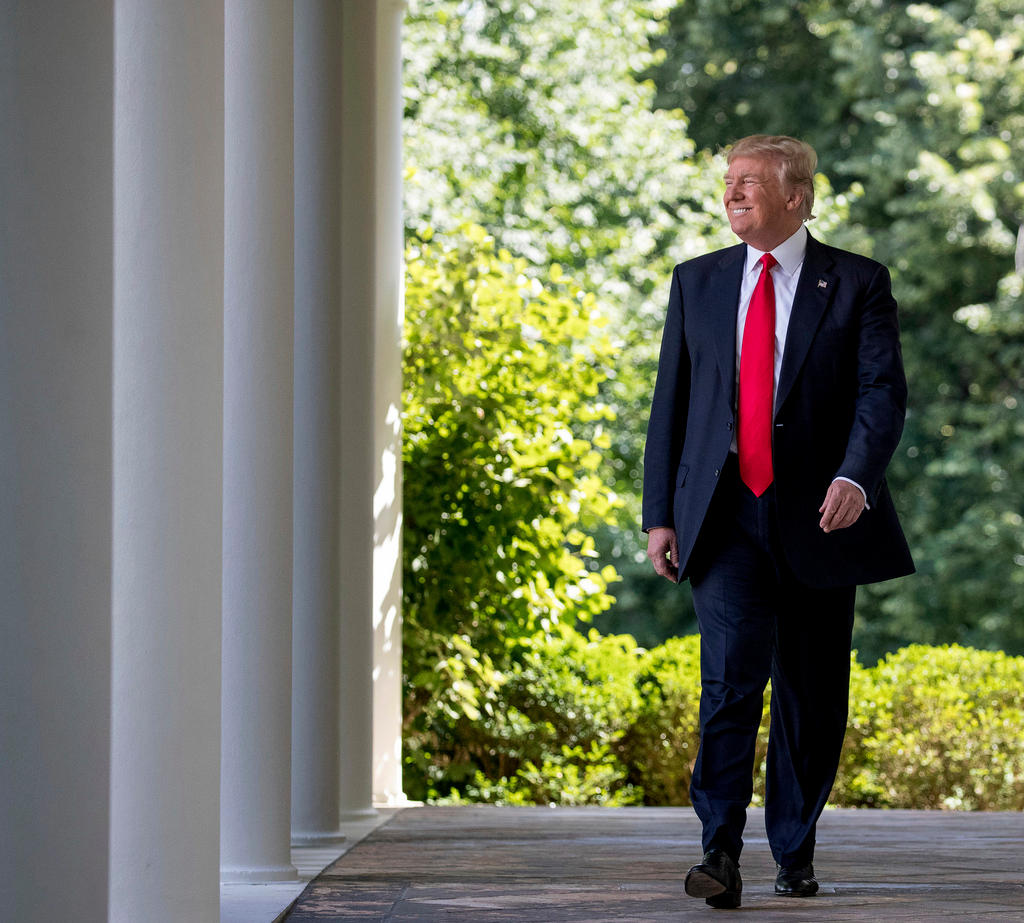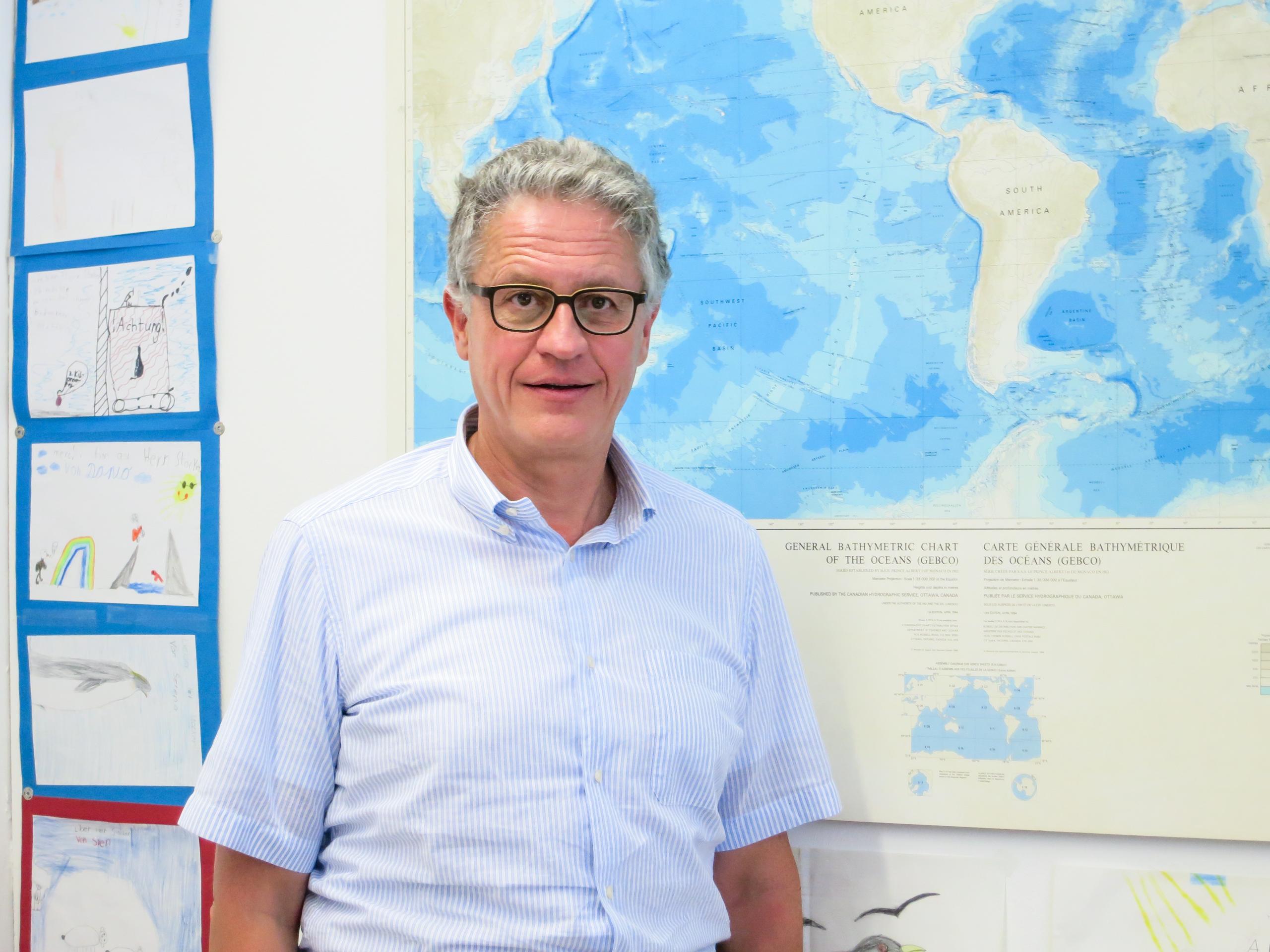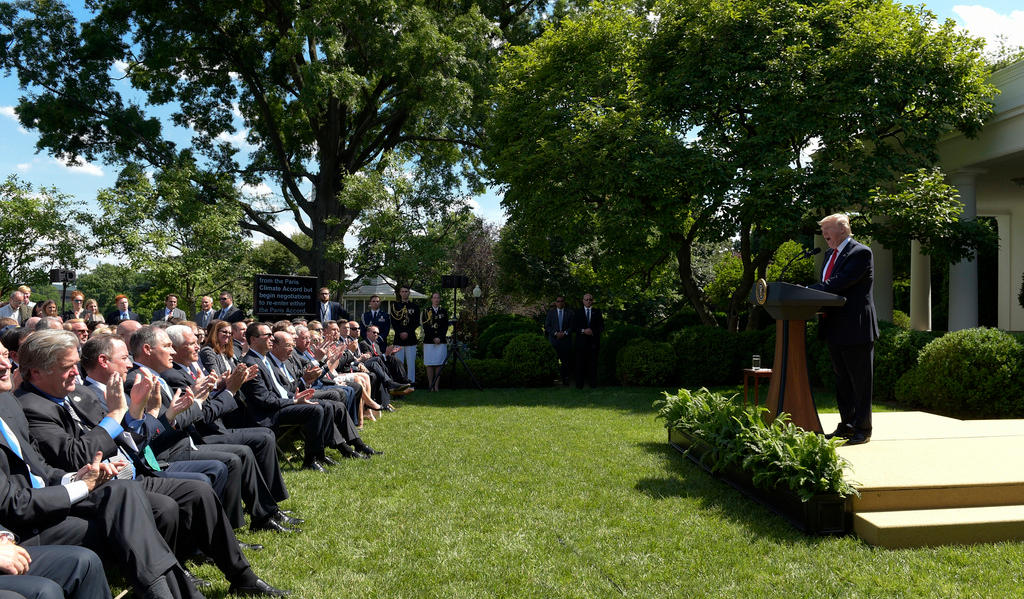‘An act of global irresponsibility’

The withdrawal of the United States from the Paris Climate Agreement sparked indignation around the world. For internationally renowned Swiss climatologist Thomas Stocker, this will clearly complicate efforts of climate protection. But the American decision also offers a unique opportunity for the Swiss economy, as well as for Swiss science and innovation.
swissinfo.ch: Did President Trump’s decision surprise you?
Thomas Stocker: No, it didn’t surprise me, because he had announced it. But I am deeply disappointed that he did it. We witnessed an act of global irresponsibility.
What does this withdrawal mean for the Paris Agreement?
It is certain that the US will not respect their emissions reduction obligations in the framework of the Paris Agreement. This also means that Barack Obama’s Clean Power Plan, which foresees emissions being reduced by 32% compared to their 2005 values by 2030, will probably not be implemented.
But hope lies in the fact that various US states are continuing their efforts in matters of climate protection. This can be significant. Just think of California, or the east coast states, where climate protection is already ingrained in the population. This is progress made without the federal government’s support.
What are the consequences for the global climate?
For the climate itself, the withdrawal of the US represents a difficult situation. It makes the ambitious objective to limit climate warming to less than two degrees Celsius even more ambitious. Recall that the US is the second greatest emitter of CO2 on the planet, after China. It is a factor that makes the achieving of climate objectives more difficult
So, it’s a darker future that’s taking shape…
This will certainly make things more difficult for climate protection. The withdrawal of the US stokes all of those forces that have been trying, for many years, to slow or hinder technical progress in the direction of renewable energies. But these forces must realize that the decision by Donald Trump prevents the creation of jobs linked to this progress.
One could therefore say that this decision has taken the US from “America first” to “America behind”. The US will be isolated. Europe, China and Russia have already announced their leadership. They all support the Paris Agreement and have clearly indicated that a renegotiation like the one that President Trump wants is out of the question.
Does the US withdrawal also have consequences for Switzerland?
No, no direct consequences, except for the fact that the realization of the two-degree objective becomes more difficult for all countries. I hope that Switzerland will engage even more strongly in the coalition of countries that want the Paris Agreement to go forward. It is, in effect, a unique chance for Switzerland, economically and for the fields of science and innovation, to invent and develop new technologies.

For example this giant CO2 vacuumExternal link, which a company has just presented in Switzerland?
Exactly! That’s where things are headed.
In the future, could science take up the role of politics?
No, naturally not, this is not the task of science. Its mission consists of highlighting the risks and delivering scientific knowledge to those who make decisions. Donald Trump’s decision reflects a total ignorance of scientific facts contained in the 2014 Climate Report, which was accepted by all the countries that formed the basis of the Paris Agreement.
The agreement, which replaces the Kyoto protocol of 1997, sets an objective to limit warming to “well below 2°C” and calls for “continuing efforts to limit the increase to 1.5°C” compared to the pre-industrial era. It also provides for a review of mandatory commitments “every five years” from 2025, as well as increased financial assistance to southern countries.
Aid to developing countries, which should reach $100 billion annually by 2020, is expected to be revised upwards. This reflects a long-standing demand by these countries.
The Paris Agreement must allow for the reorientation of the world economy toward a low-carbon model. This revolution implies a progressive abandonment of fossil resources (coal, oil, gas) that dominate global energy production. It also requires an increase in renewable energies, vast energy savings or increasing protection of forests.
Translated from French by Celia Luterbacher

In compliance with the JTI standards
More: SWI swissinfo.ch certified by the Journalism Trust Initiative














You can find an overview of ongoing debates with our journalists here . Please join us!
If you want to start a conversation about a topic raised in this article or want to report factual errors, email us at english@swissinfo.ch.